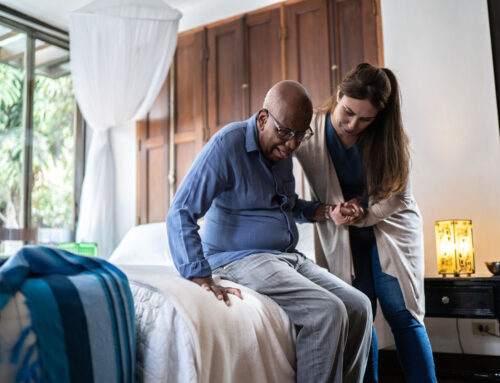Sharing your end-of-life wishes with your physician is one of the most important steps you can take to ensure you receive the care that supports your goals. April 16 is National Healthcare Decisions Day, a day dedicated to encouraging every individual to have important conversations about their advance care planning. This month, Roze Room encourages you to take the critical step of making your wishes known to your healthcare providers. If you are living with a serious illness, then timely advance care planning becomes even more important. Here’s a few tips on how to talk to your doctor about end-of-life wishes.
Important Topics To Discuss With Your Physician
When living with a serious illness, it’s important for your medical team to understand the type of treatment you want if there comes a time when you can no longer speak for yourself. Really understanding your own beliefs, goals and wishes takes time and thoughtful consideration. When considering important choices at the end of life, it starts with understanding and sharing your own “why” as well as truly understanding potential choices and their impact. Though it is important to also speak to your family about your wishes, it is your physician who will be key in your care. They will need guidance on how to manage your care.
Here are five important topics you should discuss with your physicians:
- Share Your Goals. Talk about your goals. Do you want to extend life as long as possible, or is quality of life more important? How much treatment are you willing to undergo at the expense of quality of life? Talk about your goals for pain control and symptom management. What balance do you want between relief of pain and being more alert?
- Express What Is Meaningful. Share what will be meaningful to you at the time of death, such as being surrounded by friends and family, having a chaplain present, being with a beloved pet, or having music playing. Would you choose to pass in a hospital, at home, or in a nursing home?
- Talk About Choices. Share what you would like to happen if you grow tired of aggressive treatments that are no longer effective. Would your focus become quality of life? Ask about and understand options like hospice care and palliative care so you understand choices and available support.
- Share Treatment Preferences. If your medical condition progressed to require life-sustaining treatment or interventions, what would your preferences be? Life-sustaining treatments are medical treatments that keep you alive for a period of time but will not be a cure or make you better. Share with your physician what life-sustaining treatments or interventions you would want or not want, like feeding tubes, breathing machines, or cardiopulmonary resuscitation (CPR). Share also what might make you change your mind. Tell your doctor in what situations you would want life-sustaining treatments and in what situations you would not want life-sustaining treatments.
- Talk About Sharing Information. Discuss how and when you want your medical providers to share information on your prognosis with your loved ones. Guide them on what they can and cannot share if a loved one accompanies you to a visit. Also let them know the role you want them to play in supporting your decisions with family members.
Talking about your end-of-life wishes with your physicians may seem like a difficult and unwanted conversation. Having open, honest end-of-life conversations can help ensure you maintain your dignity. These frank conversations can help guide more informed future care decisions and help increase your quality of life.
If you are living with a serious illness, Roze Room can help guide you with information on choices focused on quality of life. We’re here to help you understand hospice and palliative care options or answer any questions you may have.





